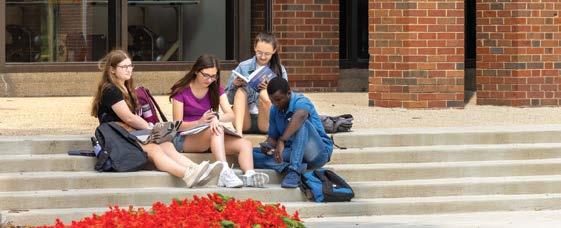




Libraries are living institutions and must continue to evolve to meet the changing needs of their communities. At the Golda Meir Library, we celebrate the renovation of the Archives, completed last fall and noted in the pages of this annual report. This summer, we started three other renovation projects to create fresh and inviting study and collaboration spaces for UWM students.
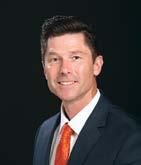
Michael Doylen, Associate Vice Provost and Director of Libraries
In partnership with the Graduate School, our construction of a Graduate Student Commons on the second floor, east wing will provide a much needed “third space” for graduate students across disciplines to meet and study together. See our story in this report for more details.
Additionally, we are renovating areas on the second floor, west wing to expand the floor plan for open seating and adding two reservable group study rooms.
Lastly, with the generous support of philanthropists Sheldon and Marianne Lubar, we are renovating and modernizing a meeting room on the third floor, west wing.
Upgrading facilities is just one way the Libraries pro-actively support student success and research excellence at UWM.
We also strive to deliver crucial, up-to-date library resources. For example, during the 2023-24 year, we piloted a program that provided faculty-assigned course materials for students in 15% of the courses offered at UWM. The pilot was a success and will become part of our standard purchasing model going forward.
The landscape of higher education continues to evolve at a rapid pace and academic libraries are not immune from these changes. In the spring we said goodbye to two staff members at the UWM at Washington County Library, as that campus closed in May. We remain committed to fully serving the UWM at Waukesha community through its closure at the end of the spring 2025 term.
Michael Doylen, Ph.D., M.L.I.S.

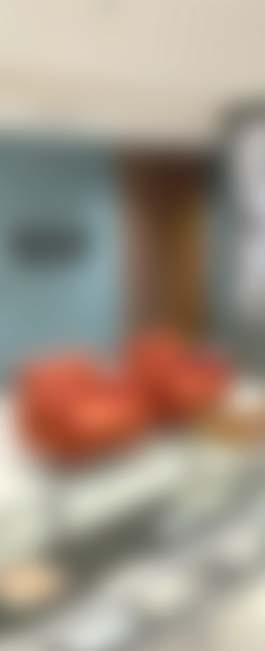
The Archives Department celebrated the completion of its new $2.8 million renovation with a ribbon-cutting and open house on September 20, 2023. Remarks from Vice Chancellor of Diversity, Equity and Inclusion Chia Vang and Libraries Director Michael Doylen began the program.
The new Archives, located on the third floor, west wing of the Golda Meir Library, includes an active learning classroom to maximize collaboration among students, a public reading room, and exhibits to showcase the collections.
The renovation also consolidates and expands collection storage and provides essential environmental controls to support the long-term
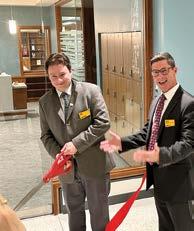
preservation of valuable and fragile documents, photographs, films, and other materials.
The opportunity to undertake this renovation was made possible by a generous $1 million gift from an anonymous donor. Additional support was provided by the State of Wisconsin, local foundations, and private individuals. The project reached its fundraising goal in 2020, and construction began in December 2021.
“This impact of this renovation is truly transformative. It leans into the instructional mission of the Archives and provides our students with modern and welcoming spaces in which they can study, collaborate, learn, and conduct research,” says Libraries Director Michael Doylen.
Archives Head Derek Webb adds, “The new Archives is equipped to do every aspect of our work better: we have a classroom designed to facilitate innovate teaching methods, a climatecontrolled storage area to better preserve unique historical records, and a spacious and comfortable reading room where researchers can consult the materials without distraction.”
Engberg Anderson Architects designed the project; JH Hassinger, Inc. was the general contractor.
Head of Archives
Derek Webb (left) and Libraries Director Michael Doylen at grand opening.
The Archives’ collections focus on the history of UWM and providing access to primary sources, largely from the metropolitan Milwaukee area, that have long-term research and instructional value.
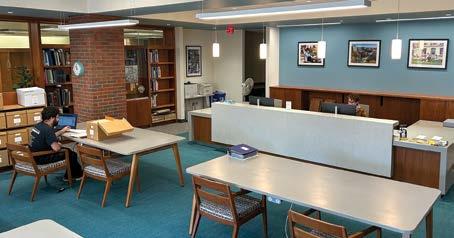
Collection strengths pertain to the subject areas of social justice, underrepresented populations, LGBT communities, and the Milwaukee brewing industry.
Significant individual collections include the WTMJ-TV news film archive, Roman B.J. Kwasniewski photographs, and the editorial files of the Little Review magazine.
The Archives’ collections are an indispensable source of information for local history projects, from magazine articles to scholarly books and documentary films. Additionally, archivists provide course-integrated instruction to students from UWM and other local colleges and universities, teaching critical thinking skills about the past and historical sources.
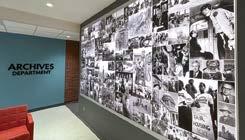
(From top) Archives reading room, exhibit area, storage.
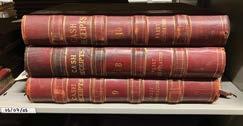
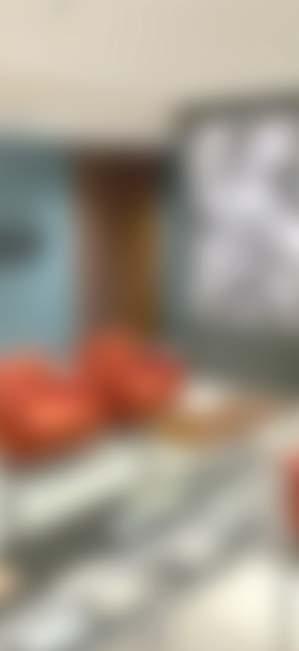
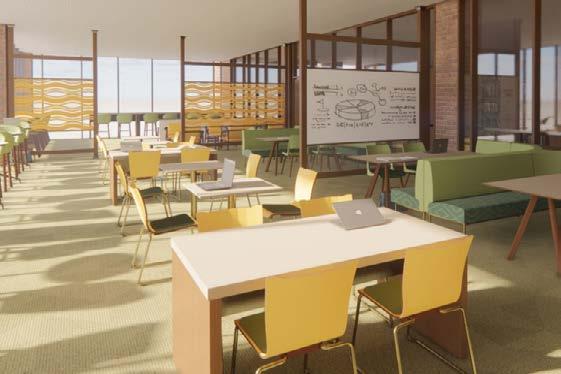
SUCCESS
Construction of a 2,700 square foot Graduate Student Commons on the second floor, east wing of the Golda Meir Library began this summer. The project, a collaboration between the UWM Libraries and the Graduate School, will provide graduate students, who make up 20% of the student population at UWM, with a “third space” for their study needs — an alternative to home and classroom — where they can come together and build community.
Currently the need for these third spaces
is unevenly met by UWM schools and colleges, and the existing spaces vary in comfort, accessibility, and usefulness. The Golda Meir Library is a natural site for a commons on the main campus.
Overlooking the UWM Fountain and offering ample natural light, the new commons will be accessible to graduate students only. The space will support both group and individual work.
Construction began in May and is planned for completion in the fall 2024 semester.
Architect’s rendering of the Graduate Student Commons
The UWM Libraries and the Roberto Hernandez Center have collaborated on a new podcast showcasing Latinx history at UWM and in Milwaukee.
The podcast was formally launched October 5, 2023 at a reception in the Golda Meir Library’s fourth floor Conference Center.
The podcast draws on extensive oral histories housed in the UWM Archives, which were collected for the Roberto Hernandez Center’s 50th anniversary in 2020. The podcasts also use materials from the Wisconsin Historical Society.
Alberto Maldonado, director of the Roberto Hernandez Center, worked with Ann Hanlon, head of Digital Collections and Initiatives, to develop the podcast, titled HOLA Archives Podcast Project. A grant from the Wisconsin Humanities Council supported the effort.
“The podcasts feature the people, places and moments that are important in our history,” Maldonado said. He provided the introduction, while Hanlon wrote
the script, and Gabriela Dorantes, senior advisor and multicultural student success coordinator at the Roberto Hernandez Center, narrated. The team also relied on the research and history written by Joseph Rodriguez, professor of history.
The first episode features the voices of early Latino/a students and community activists who led protests and a takeover of the chancellor’s office in 1970. This episode draws on Rodriguez’s 2005 article, “Latinos at UWM: A History of the Spanish Speaking Outreach Institute and the Roberto Hernandez Center.”
Episode two draws on Patricia Torres Najera’s dissertation, “We Were the Outsiders and Treated as Such: Community Activism and the Intersections of Ethnicity, Gender, Class and Race Among Latinas in Milwaukee.”
The podcast is available at uwm.edu/libraries/digitalhumanities-lab/hola-podcast.
- Kathy Quirk
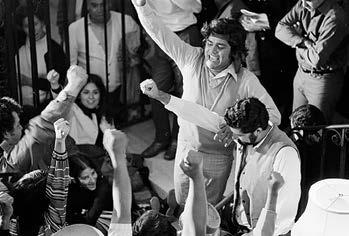
Jesus Salas (middle), Roberto Hernandez (far left) and community members celebrate the creation of the Spanish Speaking Outreach Institute in 1970. (UWM Archives)
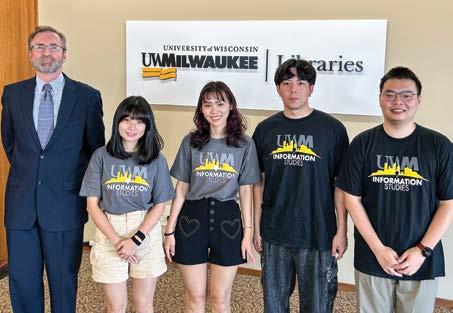
The Libraries and the UWM School of Information Studies (SOIS) hosted library students from the National Taiwan Normal University this summer via a program now in its twelfth year.
Four Taiwanese students were welcomed at a reception in the Golda Meir Library on June 13. Dietmar Wolfram, associate dean and head of school, SOIS, spoke at the event.
The students—Lin Hsuan-Yu, Liu Li-Hsin, Fan Yang-Hsin, and Chang YaoChu—attended SOIS classes and worked alongside librarians at the UWM Libraries, Marquette University Raynor Memorial Libraries, and Milwaukee Public Library.
Their two-month stay also included sightseeing in Milwaukee and Madison, and a trip to San Diego for the annual conference of the American Library Association.
From left, Dietmar Wolfram, Liu LiHsin, Lin Hsuan-Yu, Fan Yang-Hsin, and Chang Yao-Chu

Last year, the UWM Libraries made strides in fulfilling an important goal of our Diversity, Equity, and Inclusion (DEI) strategic plan by acquiring a number of books from independent publishers that focus on historically underrepresented communities.
The Libraries’ purchase plans with large publishers have always included books by and about traditionally marginalized voices and communities, but this recent effort by Collection & Resource Management (CRM) identified smaller presses with missions to amplify those voices.
Those presses include:
• Akashic Books, concentrating on historically underrepresented authors and subject matter.
• BLF Press, devoted to BIPOC authors and subject matter.
• Indolent Books, emphasizing LGBTQ+ authors and subject matter.
• Kaya Press, publishers of Asian and AsianAmerican authors and subject matter.
• Kegedonce Press, focused on Indigenous authors and subject matter.
Among the volumes acquired were:
• A Gentle Habit by Cherie Dimaline (Kegedonce)
• On the Origin of Species and Other Stories by BoYoung Kim (Kaya)
• Black from the Future: A Collection of Black Speculative Writing edited by Stephanie Andrea Allen and Lauren Cherelle (BLF)
• Was Body by Billie R. Tadros (Indolent)
• Fair Play: How LGBT Athletes Are Claiming Their Rightful Place in Sports by Cyd Ziegler (Akashic).
“The books are a positive addition to our collection,” says Chris Doll, library associate director for CRM, “and we will continue to identify works from other publishers to represent the voices of historically underrepresented communities.”
The American Geographical Society Library awarded research fellowships to three international scholars for 2024. All three are exploring a “view from the outside“ — as one of the fellows, Jitka Mo čičková, characterizes her research topic — during their time in AGSL.



Jitka Moč ičková is a post-doctoral fellow in the Department of Modern Transnational and Intellectual History at the Institute of History, Czech Academy of Sciences (CAS), Prague, and curator of the institute’s map collection. For her project, “Mapping the (Epi)Centre: American Cartographic Reflections on the Transformation of Central Europe in the First Half of the 20th Century,“ Mo čičková will look at the cartographical materials prepared by the American Geographical Society for the US delegation to the Paris Peace Conference in 1919, contemporary monographs and scholarly journals, and maps of Central European provenance in the AGSL collection.
Maxwell Woods, assistant professor of liberal arts at L’Universidad Adolfo Ibáñez, Viña del Mar, Chile, will explore the cultural geography of Bolivia found in the travel writing of the Irish female author, Ena Dargan. Focusing on Dargan’s book, Road to Cuzco: A Journey from Argentina to Peru (1950), Woods will analyze how the white colonial geographic imagination is affected by nationality and gender. Woods will study Dargan’s rare volume alongside other travel narratives through indigenous Latin America at the same time as Dargan’s and pamphlets from mid-20th century European cartographers and geographers detailing the geography of Bolivia.
Victoria Sánchez Mellado, Ph.D., Universidad Pablo de Olavide, Sevilla, Spain, will examine 19th- and 20th-century travel books about Spain written by non-Spanish authors. From the AGSL’s vast collection of travel-related materials, she has selected 30 books, published between 1847 and 1955, by writers from the United Kingdom, US, Italy, France, Australia, Germany, Brazil, Ireland, Uruguay, and Argentina that she will study alongside historical maps. Her goal is to analyze the correlation of the prominence of certain places of interest, the ways those places and their monuments are mapped, and their inclusion in the travel narratives.
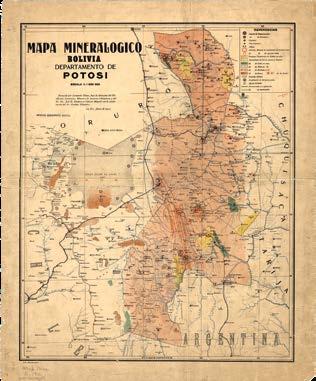
(Left) Mineralogico Bolivia, Deparmento de Potosi, 1912.
(Below left) Sketches Awheel in Modern Iberia, Fanny Bullock Workman and William Hunter Workman, 1897.
(Below right) Comment les Slaves peuvent barrer aux Allemands le chemin vers l’Orient, Tomáš Garrigue Masaryk, 1918.
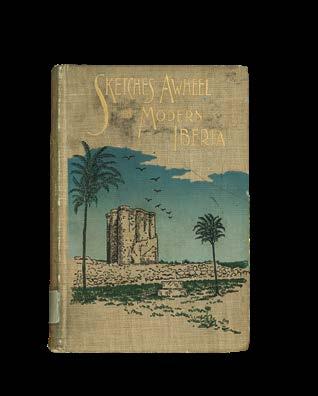
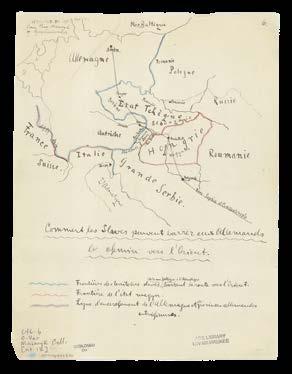

This spring Special Collections curator Max Yela organized Milwaukee’s first photo book festival, “The Decisive Moment,” held at Anchor Press, Paper, & Print in Milwaukee’s Riverwest neighborhood. Over 300 people attended the festival, which included contributions by sixteen noted regional photographer/ book artists, Special Collections, and the Milwaukee Public Library.
Some of the rare works shared by Special Collections at the event were the 1952 American first edition of Henri CartierBresson’s influential photobook, The Decisive Moment (after which the festival was named); several late 1960s/early 1970s photo book works by Ed Ruscha; more contemporary book works, such as Nikki S. Lee’s Projects (2001) and Alejandro Cartagena’s Carpoolers (2019); and several photo artist’s books made by UWM graduate and undergraduate students.

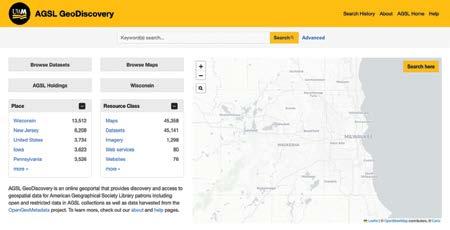
EXCELLENCE
This past fall the American Geographical Society Library (AGSL) and Digital Collections & Initiatives (DC&I) launched GeoDiscovery, an online geoportal that provides discovery and access to geospatial data in AGSL’s collections, data harvested from local data portals, as well as data and maps held by other institutions via OpenGeoMetadata.
The new portal represents the culmination of years of work towards increasing access to AGSL’s born-digital collections, allowing users to download data from the website without staff mediation. UWM will start the 2024-2025 school year with a new way to rapidly discover and acquire data for GIS projects and research.
The next phase of the project will make AGSL’s digital map collection searchable within the portal, providing streamlined discovery of GIS data and digitized maps.
Libraries staff who contributed to the project were Stephen Appel in AGSL, Jie Chen, Karl Holten, and Ann Hanlon in DC&I, and Nathan Humpal in Collection and Resource Management. External developer Eric Larson helped with the core development tasks on the front-end application.
(Above) Homepage of AGSL GeoDiscovery portal
(Below) An index map of Brazil from GeoDiscovery
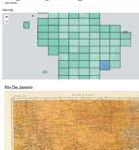
The UWM Libraries Distinctive Collections—the American Geographical Society Library, Archives, and Special Collections—hold and preserve a vast number of rare, unique, and/or historical books, maps, photographs, documents and other kinds of resources, and many of these are shared in various ways beyond the library each year. Below are some highlights from 2023-24.
American Geographical Society Library
• Hosted filmmaker Jens Becker who is working on a documentary about women who explored the Arctic. She filmed part of the Louise A. Boyd collection, which comprises photographs, maps, and an AGSL project that matches Boyd’s photos with the maps. Boyd (1887-1972) led a number of scientific expeditions to the Arctic and Greenland, and was the first woman to fly over the North Pole.
• Shared photographs from the Loren McIntyre collection for a December 2023 New York Times feature article titled “Ghosts on the Glacier” that tells the story of the unexplained deaths of two climbers in Argentina in 1973. McIntyre (1917-2003), a photojournalist for many publications including National Geographic, was part of an expedition that recovered one of the bodies.
Archives
• Shared two images of James Liddy for an online exhibition of the Maynooth University, County Kildare, Ireland titled “Our Roots Travel Widely: Beyond Regionalism and Nationalism in Irish Poetry.”
• Shared an image from the Chapman Hall takeover in 1970 to PBS Wisconsin for a project with local high school students to create a series of short documentaries published online.
• Contributed WTMJ footage and artwork images to the podcast “Run, Bambi, Run” about Laurie Bembenek.
• Loaned ten artists books and a portfolio of prints to the UWM Union Art Gallery exhibition “Seeing the Unseen: Reflections on Patriarchy.”
• Loaned four books to Nikki Ranney’s graduate thesis exhibition “Saintly: Christian Women in Early Modern Europe” at the UWM Mathis Gallery.
• Loaned one book to Dr. Kay Wells and Leigh Mahlik’s co-curated exhibition “What the Folk?” at the UWM Mathis Gallery.
(Top) Women’s Work by Maryann Riker, 2009
(Bottom right) Isfjord, Greenland. Photo by Louise Boyd, 1931 (Bottom left) James Liddy (at left) with friends, New Orleans, c.1975
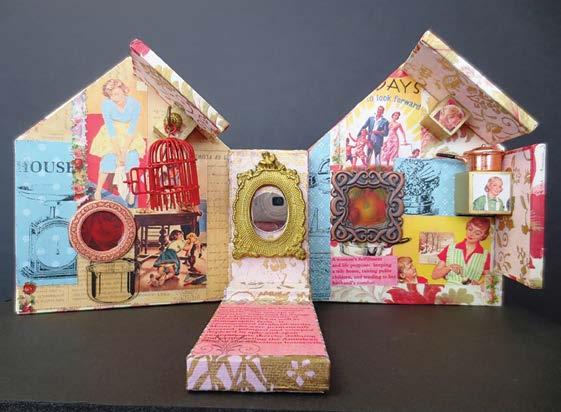
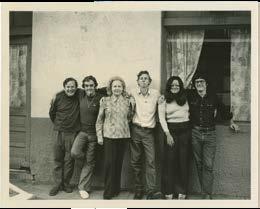

The 54th Morris Fromkin Memorial Lecture was titled “Out of Sight: The Black Middle Class in Milwaukee” and presented by Ermitte Saint Jacques, assistant professor in the UWM Department of African and African Diaspora Studies, on October 19, 2023 in the fourth floor Conference Center.
Tim Wallace, senior editor for geography at The New York Times, delivered the 34th annual “Maps & America”: Arthur Holzheimer Lecture on April 11, 2024 in the American Geographical Society Library. The title of his talk was “Newsroom Cartography.”
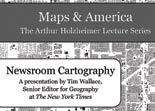

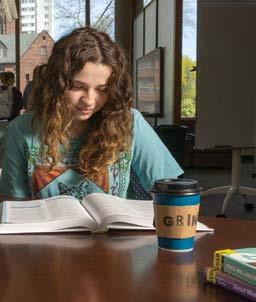
Planning for the future and creating the legacy you wish to leave is one of the most effective ways to ensure a lasting impact.
You can create such an impact on students, faculty and the community by including the UWM Libraries in your estate giving. This kind of charitable gift arrangement helps you support the causes that are meaningful to you and will make a difference for future generations.
Gifts of every size and type matter. Establishing a legacy gift is just one way for you to make certain that the UWM Libraries and programs you care deeply about will continue after your lifetime. We can’t do it without you. We are stronger together. To learn more, please visit our website giftplanning.uwm.edu.


665 research consultations
1,077 chats, emails, sms (LibAnswers)

527 online and onsite instruction sessions reaching a total of 9,627 students

233,283 UWM Libraries webpage views
348,207 UWM Libraries Libguide views
17,534 FAQ views
1,980,022 e-books
290,795 e-journals
394 databases

55,859 interlibrary loan requests filled by UWM Libraries for other institutions
20,392 requests filled by other libraries for UWM
2,430 articles scanned for UWM community
42,697 books and other matrials circulated, including laptops and wifi hotspots
Thank you. The Libraries gratefully acknowledge the following individuals and organizations who gave monetary gifts to the Libraries from July 1, 2023 to June 30, 2024.

Jeanene O’Brien

And many thanks, as well, to the following individuals and organizations who gave gifts-in-kind— books, maps, DVDs, and other library materials—from July 1, 2023 to June 30, 2024.
